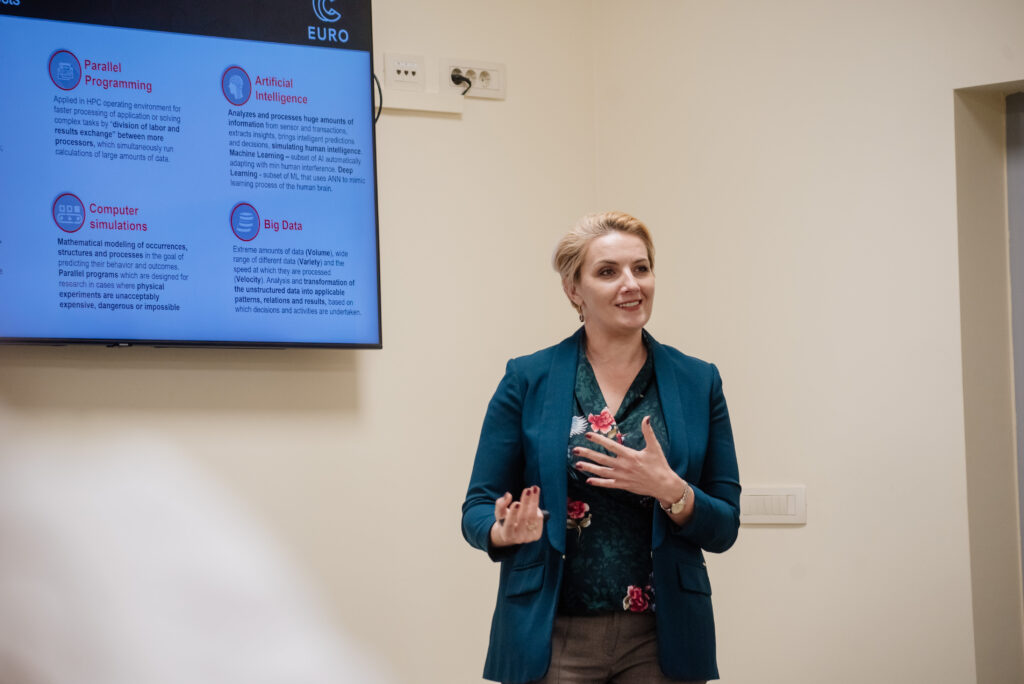The Parallel Programming course has begun at the University of Donja Gorica, with more than 50 registered participants, organized as part of EuroCC project activities focused on the development of HPC and parallel programming skills and competencies.

In front of National Competence Center for High Performance Computing (HPC NCC), mr Sanja Nikolić introduced the course participants to supercomputer systems and applications, especially from the aspect of their commercial application and digital transformation of business models towards innovative processes and products to improve industrial competitiveness. She also presented the EuroHPC Joint Undertakingthe , whith budget of € 7 bn for the improvement of the HPC ecosystem in Europe through the Digital Europe and Horizon Europe programs, and through projects such as EURO CC, which focus is on the development of National Competence Centers in the field of high-performance computing, as reference point for coordination of all national HPC activities and access to Eurpean supercomputing resources. The activities of NCC Montenegro were also presented, focusing on HPC/HPDA/AI research and development, competence mapping, education and trainings, as well as on examples of successful cooperation with representatives of industry, academia and public sector resulted in HPC-advanced business practices.

Assistant professor dr Luka Filipović instructed attendees in the technical aspects and configuration of the HPC systems, parallel and distributed computer systems and presented in detail the plan of the theoretical and practical part of the parallel programming course intended for high-performance computing. Within the course program, lasting 6 weeks, the concepts of parallel computers, their purpose, architecture, division, guidelines for the development of parallel programs, as well as the analysis of the performance of parallel programs will be duly explained. In the practical part, the development of parallel programs based on the architecture of shared and distributed memory and based on the hybrid model will be demonstrated by respective examples. The lectures will be held in cooperation with colleagues from the HPC National Competence Center of Germany.

The Parallel Programming course is attended by representatives of the industrial sector and interested students of regular, master and doctoral studies of all universities, who will receive a corresponding certificate upon successful completion. Students of the Master’s program Artificial Intelligence from the Faculty of Information Systems, UDG will present their seminar papers at the end of the course.


